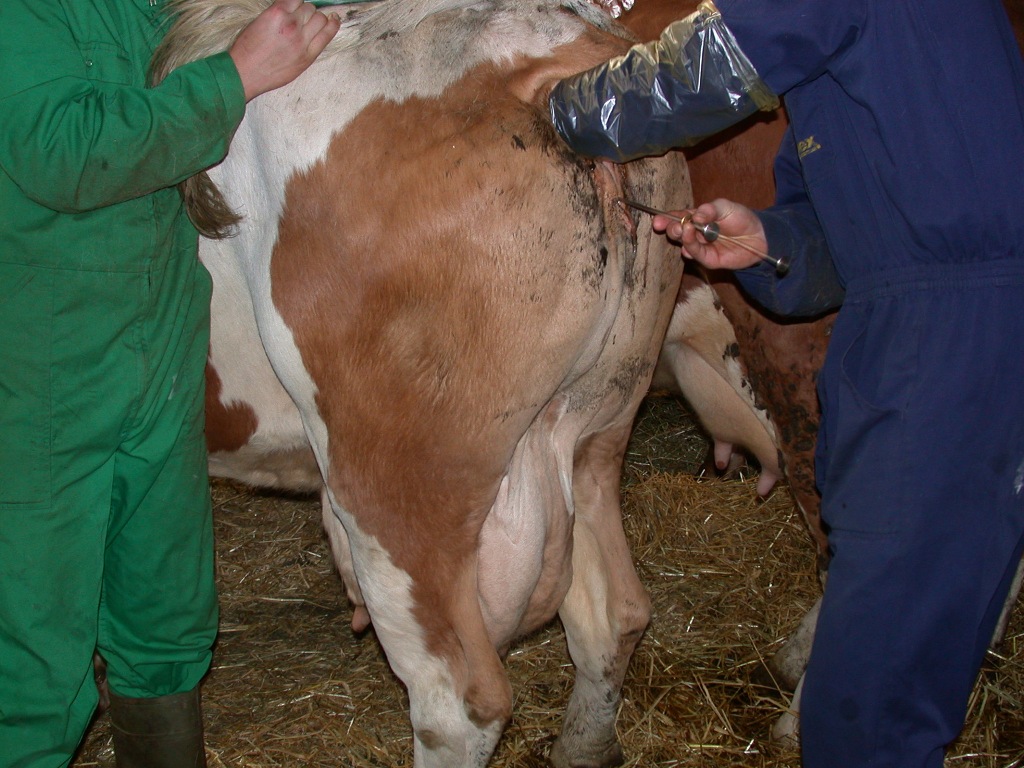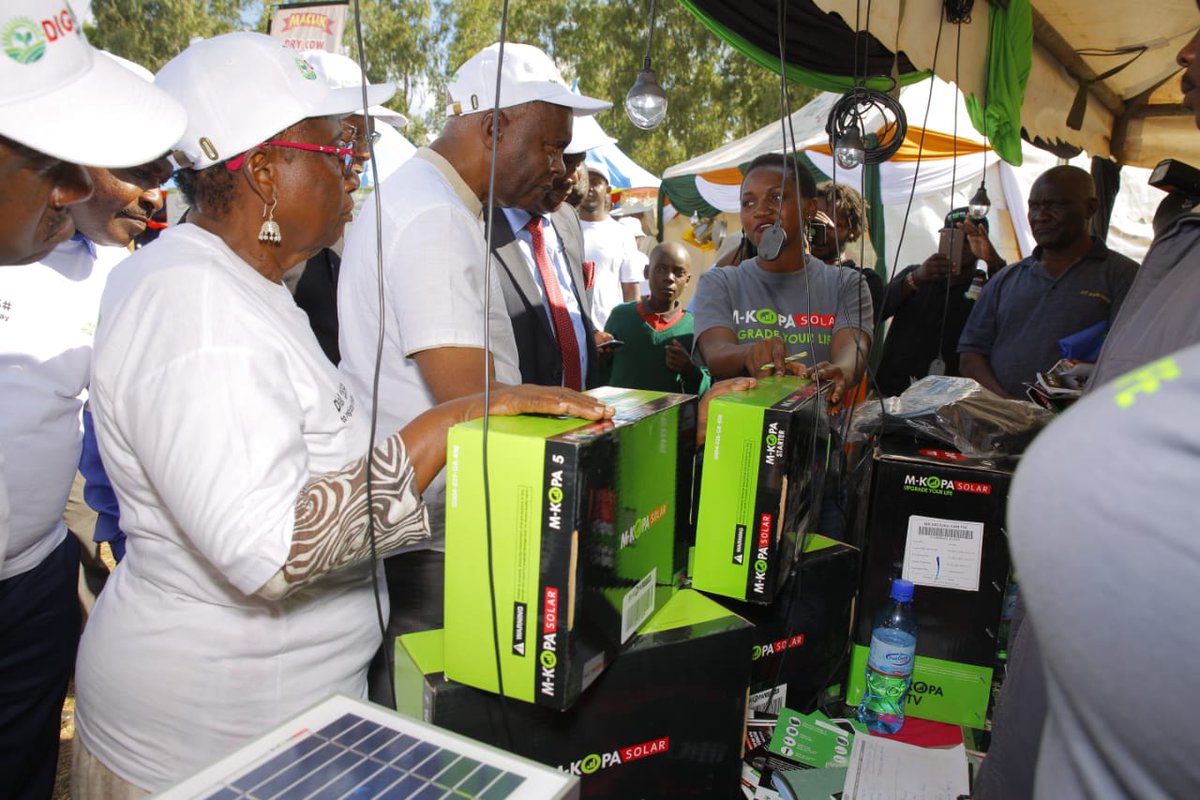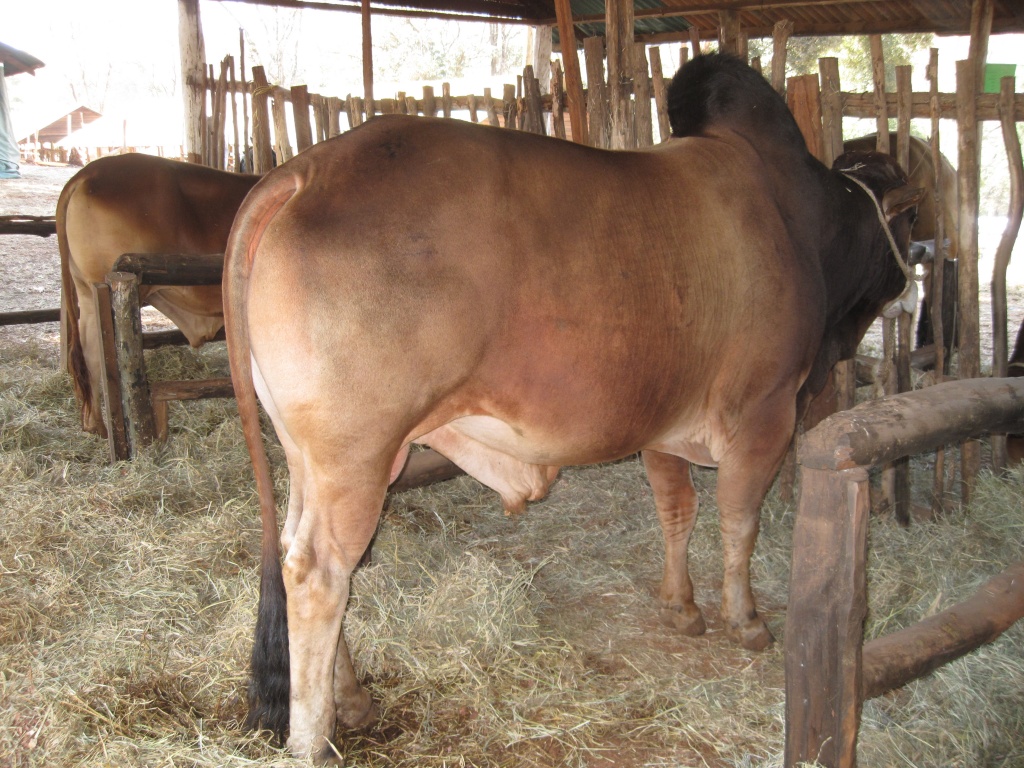
Veterinary officials administering artificial insemination service to a cow. Photo courtesy.
The Kenya Agriculture and Livestock Research Organization has embarked on a research study in Kakamega County following rising cases of livestock death and infertility which has been blamed on, among others, the use of dead semen during artificial insemination by farmers in the county.
KALRO has partnered with USAID to carry out a research in a bid to find out what has been causing unprecedented occurrence which if not handled may cause low productivity especially in dairy cows.
According to a 2013 study by Camilla Eklundh for the Swedish University of Agricultural Sciences on The use of artificial insemination in dairy farms in urban/peri-urban Kampala, Uganda, one strategy for improving productivity in dairy cows through faster genetic improvement is to breed them using proven semen via artificial insemination (AI).
However, the study further indicates that if it is not managed in a correct way, AI can cause wide spreading of diseases and genetic defects lowering the cows’ productivity.
It is estimated that Kenyan farmers lose up to 60 per cent of revenue per year per cow in failed AI because of inaccurate determination of the fertile cycle, lack of well trained and technically skilled personnel and not using relevant equipment.
Now a section of Kakamega farmers are blaming county veterinary officials arguing that the county veterinary officers have been using dead semen to inseminate their livestock causing death of their calves and subsequent infertility.
On the other hand, the county director of veterinary services Dr. Fineas Mulala blamed the situation on poor livestock management including inadequate feeding as well as poor shelter for the animals and their calves.
RELATED ARTICLE: New device with 70 per cent artificial insemination rate coming to Kenya
RELATED ARTICLE: Farmers saves over Sh30,000 with artificial insemination
RELATED ARTICLE: Artificial insemination in chicken boosts egg fertilization
The county government subsidised AI services to assist farmers upgrade their stocks. The subsidised semen goes for Sh700 instead of Sh1,500.
However, KALRO’s research which will run for two years will see farmers receive training on best practices as well as get access to artificial insemination for their livestock for free during the study period.
Kakamega County has in the last three years been giving dairy cows to select farmers under its one-cow initiative.
The programme is meant to enhance milk production within the county, as the government plans to establish a multibillion-shilling milk processing plant in Malava subcounty, starting this financial year.
Write comment (0 Comments)



 More than 150,000 farmers in Makueni County will now access information on the best farming practice, discounted farm inputs and credit services through Safaricom’s DigiFarm, an agribusiness service tailored for small-holder farmers.
More than 150,000 farmers in Makueni County will now access information on the best farming practice, discounted farm inputs and credit services through Safaricom’s DigiFarm, an agribusiness service tailored for small-holder farmers. Zebu bulls at a stand during past nairobi International Trade Fair. Photo: Zablon Oyugi.
Zebu bulls at a stand during past nairobi International Trade Fair. Photo: Zablon Oyugi.










